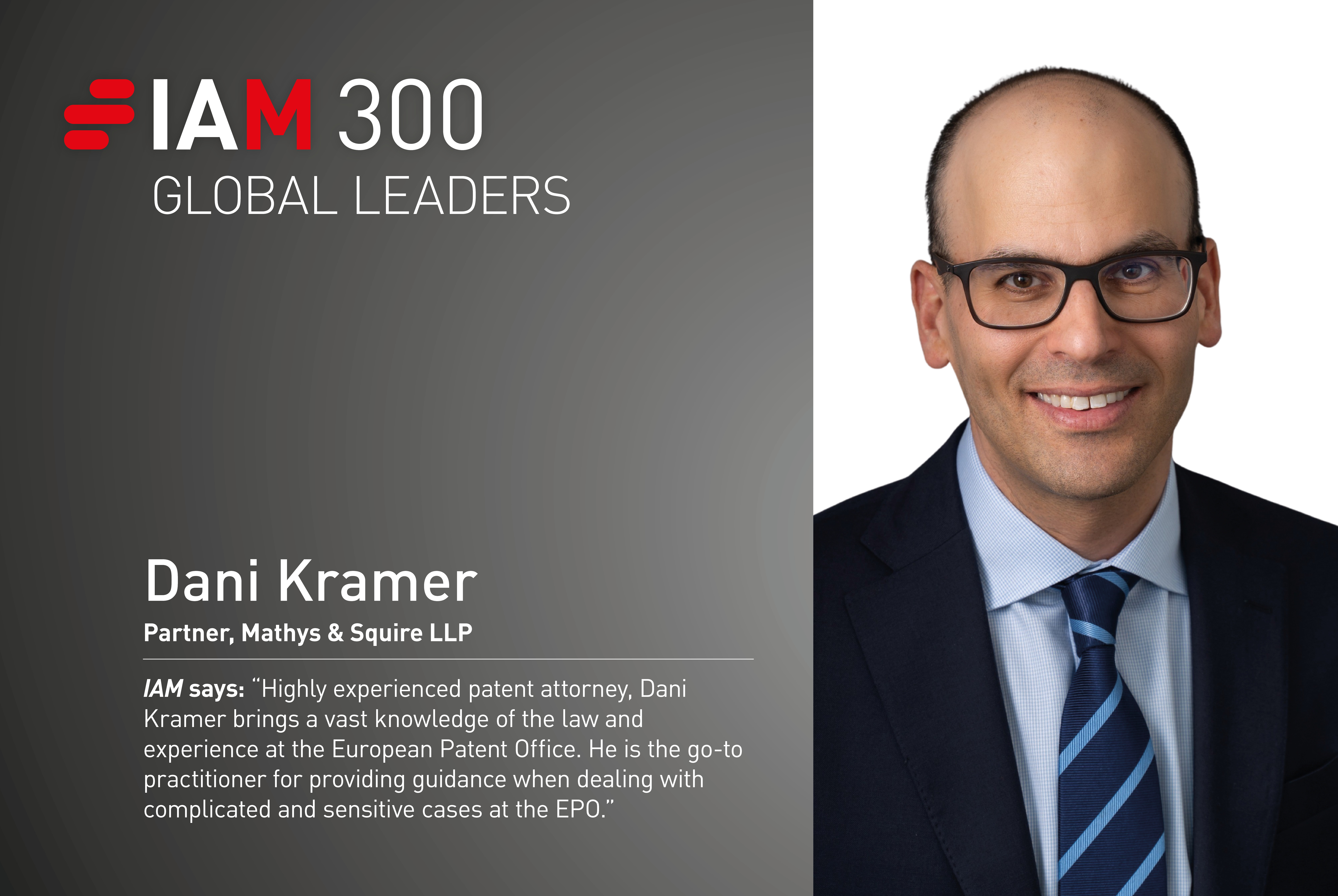Dani Kramer
What prompted your shift from electrical engineering into IP law, and what advice would you give to others considering a similar move?
I have always been fascinated by science and technology with a desire to understand how things work, so an undergraduate degree in electrical engineering was a natural fit. I went on to postgraduate research in machine learning and AI. Unlike my fellow graduate engineers, I enjoyed writing up my thesis almost as much as I enjoyed the scientific research, so when I stumbled upon the patent profession, which brought together an aptitude for science with the ability to write, I decided to train as a patent attorney. I still see myself as an engineer, so I haven’t so much as shifted from engineering to IP law but rather used my scientific and engineering background, together with my legal training, to assist clients in protecting a diverse range of cutting-edge technology. If you have an aptitude in science and technology, but are unsure what career path to follow, then you should speak to a patent attorney to find out whether this might be the career for you.
As head of Mathys & Squire’s practice in Israel, what decisions and legislative developments have had the biggest impact on IP strategy in Israel in recent years?
Israel has been a hotbed of R&D and technological innovation for many years, and as the start-up nation it is home to the world’s largest number of start-ups outside of the United States. Naturally, Israeli start-ups focus on the United States, both as a market and as a source of investment. This means that Israeli companies tend to be quite US-centric in their IP strategies. However, with increasing globalisation Israeli companies must make sure that their IP strategies take account of the rest of the world, as what works in the United States doesn’t always translate elsewhere. This is particularly true of Europe, where the patent landscape is now shifting dramatically with the UPC coming into effect. Israeli companies need to be cognisant of developments outside of the United States and make sure that they don’t miss IP opportunities or prejudice their IP position outside of there.
What are the biggest challenges facing your clients at present?
Firstly, IP legislation will always lag behind the rapid innovations that it is seeking to promote and protect. This can be frustrating for clients and I find that I need to be quite creative to get the most out of entrenched legal systems as they slowly evolve. Secondly, budget constraints in these uncertain economic times have an impact on both small start-ups and large corporates, and it is up to me to ensure that clients get the most value out of their budgets. Finally, inconsistencies between legislation in different jurisdictions make it difficult for clients to ensure that their IP strategy is globally effective since they need to factor in regional differences, which are often mutually exclusive – what works in one jurisdiction might well not work in another.
Now that the UPC is officially up and running, what effect, if any, is its launch having on your clients’ strategies so far?
In the lead up to the launch of the unitary patent and the UPC, many clients focused on whether to opt out. Given that the system is untested, it makes sense to approach it with some caution. However, this new system does present real opportunities for European patent holders, as it opens up a number of different options for both securing, and exploiting, patents in Europe. Clients are now beginning to explore these possibilities, which is exciting from a practitioner’s point of view.
What, in your opinion, are the key components of a truly world class IP strategy?
Having advised a range of clients – from start-ups to multinationals – I believe that the key to a successful IP strategy is to tailor it to the business needs of the company. It is vital to frequently reassess and renew the strategy to ensure that it continues to deliver commercial value to the company as its business objectives evolve.
Dani Kramer
Partner
[email protected]
Dani Kramer works in Mathys & Squire’s IT and engineering team, acting for large corporations, SMEs, and start-ups. His work includes drafting and prosecuting patent applications, advising on technology-based agreements, and handling contentious infringement and validity matters. Mr Kramer’s practice focuses on the fields of internet, television, software, AI and machine learning, microprocessors, semiconductor devices, communication technologies, electrical and electronic engineering, mechanical engineering, fuel cells and other environmental technologies cases.
